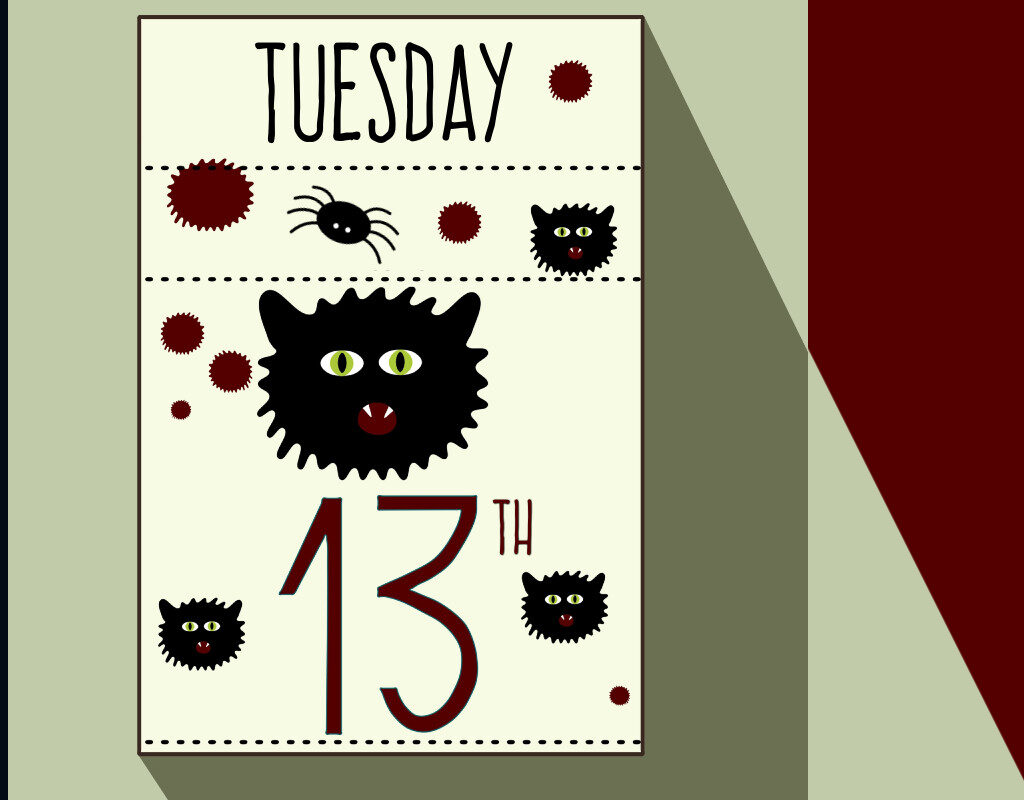Within the diverse tapestry of beliefs and traditions that make up our rich cultural heritage, few dates stir as much intrigue and superstition as Tuesday the 13th. Shrouded in mystery and ancient fears, this day carries a reputation that’s not entirely unfounded. But what lies behind this belief that stretches from Greece to the farthest corners of Latin America?
Why Do We Fear Tuesday the 13th?
First and foremost, it’s essential to understand the origin of the saying, “On Tuesday the 13th, neither marry nor embark.”
Deeply rooted in Hispanic culture, this adage captures the essence of the day’s ill repute. Moreover, the aversion is not exclusive to our lands; in Greece and other Latin American countries, a sense of caution is also palpable when these two numbers align on the calendar.
Similarities and Differences: Tuesday 13 vs. Friday 13
Interestingly, this apprehension is not unique. In Anglo-Saxon cultures, the fear centers around Friday the 13th, while in Italy, Friday the 17th is considered unlucky. This phobia of specific days even has a name: Triskaidekaphobia for Tuesday the 13th.
To grasp the connection of Tuesday the 13th with bad luck, we must look back to the Last Supper, where the number 13 represents Judas, the traitorous apostle, and last to join the table.
Furthermore, Jewish Kabbalah mentions 13 evil spirits, and in Revelation 13, the arrival of the Antichrist is discussed. Some interpretations suggest that the confusion of languages at the Tower of Babel occurred on Tuesday the 13th.
The choice of Tuesday stems from Roman mythology: the day was dedicated to Mars, the god of war and death. This association is strengthened by the planet Mars, known for its blood-red color and sometimes referred to as “the little malevolent one.”
The Counterpart: Friday the 13th
Conversely, the story of Friday the 13th finds its roots in Norse myths and coincides with the crucifixion of Jesus.
However, some view this day in a more positive light, turning it into an occasion to try their luck in gambling, using Kabbalistic practices.
What is clear is that Tuesday the 13th is a melting pot of cultural and religious influences. From ancient times to the present, this date has been marked by its association with unfortunate events and ominous figures.
Yet, it offers a fascinating glimpse into how different cultures interpret and ascribe meaning to the same numbers and days.
For many, Tuesday the 13th will continue to be a day for proceeding with caution, while for others, it will just be another date on the calendar. Undoubtedly, these beliefs are part of our rich cultural tapestry, and their study provides a deeper understanding of our traditions and superstitions.
The cover image has been provided courtesy of Depositphotos.com, a resource boasting over 250 million photographs, music, and video files.

